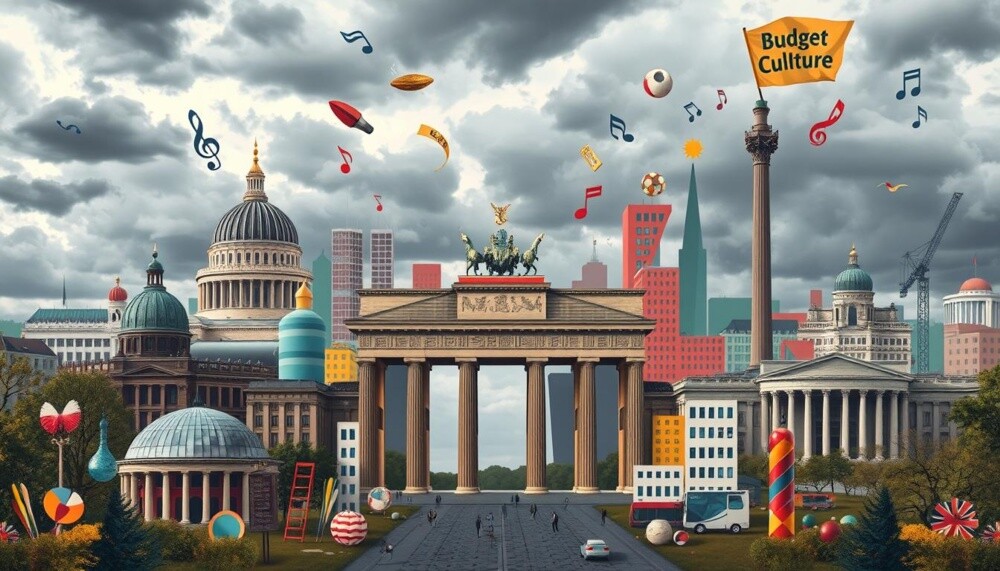Main lessons
- Berlin's city hall has announced a cut of 130 million euros from the city's arts and culture budget.
- This significant cut is expected to impact a wide range of cultural institutions, programs and initiatives in Berlin.
- The decision reflects a shift in government priorities and resource allocation, raising concerns about the future of Berlin's vibrant creative scene.
- The budget cuts come at a time when the arts and culture sector has already faced significant challenges, potentially leading to job losses and reduced programming opportunities.

Understanding the scale of Berlin's cultural budget cuts
The city of Berlin has decided to cut 130 million euros from the arts and culture budget, representing a significant decrease of around 12% of the total budget. This decision will have a major impact on the Berlin cultural scene.
The arts sector plays a vital role in the city’s economy, contributing 2% of its activity. However, these budget cuts will have serious consequences. Cultural venues will see their funding reduced by 10% to 50%, which could lead to the cancellation of many projects and generate additional costs, particularly for postponed construction projects.
"German cultural institutions cannot follow an American-style philanthropic model due to legal restrictions; endowments and the carrying over of funds from one year to the next are not permitted for state-funded institutions."
Programs related to diversity, outreach, education and IT support are likely to be reduced or eliminated. In addition, maintaining museum collections accounts for up to 90% of their budgets, making it difficult to plan and present new exhibitions.
Berlin artists will also be affected by these measures. Initiatives such as studio spaces and artist residencies are under threat or already closed, which could reduce Berlin's attractiveness for creatives from all over the world.
These cuts to the creative industry will have repercussions far beyond the arts. Tourism and hospitality, sectors closely linked to Berlin's cultural reputation, could also suffer. The city's reputation as a cultural hub risks crumbling.
Already vulnerable small galleries and independent arts groups will face severe financial hardship. Cultural education, artist residencies and community programs could also face drastic cuts, reducing residents’ access to their city’s cultural wealth.
“This is a devastating blow to arts and culture in Berlin. It will have profound consequences for the city’s creative ecosystem and the livelihoods of countless artists and cultural workers.”
Arts advocates and industry leaders are expressing discontent with the decisions, saying the policies ignore the crucial importance of the arts in shaping Berlin's identity and international appeal.
Faced with this situation, some groups are looking for alternative solutions to finance their activities. They are considering increasing private support or launching crowdfunding campaigns. Arts advocates are also stepping up their efforts to make themselves heard and keep the Berlin art scene alive.


 Jean Dubreil
Jean Dubreil